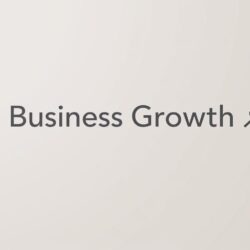Introduction to ESG Reporting Software
In today’s business environment, sustainability and ethical practices are not just optional—they are essential. Companies across industries are increasingly judged not only on financial performance but also on their environmental, social, and governance (ESG) impact. ESG reporting software plays a crucial role in helping organizations collect, analyze, and report sustainability data efficiently. Choosing the best ESG reporting software ensures transparency, compliance, and stakeholder trust while simplifying complex sustainability metrics.
Understanding ESG and Its Importance
ESG stands for Environmental, Social, and Governance—three core factors that measure a company’s sustainability and ethical impact.
-
Environmental focuses on a company’s carbon footprint, energy efficiency, waste management, and resource conservation.
-
Social examines labor practices, diversity, inclusion, employee welfare, and community engagement.
-
Governance relates to business ethics, leadership transparency, and regulatory compliance.
Investors, regulators, and consumers now expect companies to disclose their ESG performance transparently. Proper reporting not only boosts reputation but also enhances decision-making, attracts responsible investors, and ensures long-term resilience.
Why Businesses Need ESG Reporting Software
Manual ESG reporting using spreadsheets or disconnected tools can be time-consuming and error-prone. ESG reporting software automates the collection, validation, and reporting of data from multiple departments, making the process seamless and accurate. Here are key reasons why every organization needs robust ESG software:
-
Efficiency and Accuracy: Automates data entry and reduces human error.
-
Compliance: Ensures alignment with global ESG standards like GRI, SASB, and TCFD.
-
Transparency: Builds trust among investors, regulators, and customers.
-
Data-Driven Insights: Provides actionable analytics for better decision-making.
-
Scalability: Easily adapts to organizational growth and changing reporting frameworks.
Key Features to Look for in the Best ESG Reporting Software
When selecting ESG software, it’s important to assess features that meet both current and future reporting needs. The best ESG reporting platforms share several critical features:
1. Automated Data Collection and Integration
Top ESG tools integrate seamlessly with enterprise systems such as ERP, HR, and financial platforms to automatically pull relevant sustainability data. This saves time and ensures data consistency across the organization.
2. Compliance and Framework Support
The best software supports leading ESG frameworks including GRI, CDP, SASB, TCFD, and CSRD. Built-in templates make compliance easy and reduce the complexity of multi-standard reporting.
3. Customizable Dashboards and Analytics
A good ESG solution provides interactive dashboards that visualize environmental and social metrics in real-time. These analytics help leadership teams monitor sustainability goals and identify areas for improvement.
4. Data Security and Governance
ESG data often includes sensitive company information. The best platforms offer robust data encryption, access controls, and governance policies to ensure data integrity and confidentiality.
5. Audit Trails and Verification Tools
Top-tier ESG software includes features for third-party verification and audit trails. This helps validate data accuracy and ensures credibility in public disclosures.
6. User-Friendly Interface
An intuitive interface allows users from different departments to input and access ESG data easily without extensive training.
7. AI and Predictive Analytics
Modern ESG platforms use artificial intelligence and predictive analytics to forecast sustainability trends, measure carbon impact, and optimize resource management strategies.
Top ESG Reporting Software in 2025
Here’s an overview of some of the best ESG reporting software options available today, known for their innovation, reliability, and ease of use.
1. Diligent ESG
Diligent ESG is one of the most comprehensive platforms for sustainability data management. It automates ESG data collection, offers customizable dashboards, and provides built-in compliance tools for frameworks like GRI, SASB, and TCFD. Its integration with governance solutions makes it ideal for enterprise-level organizations.
2. Workiva
Workiva simplifies ESG reporting by integrating with multiple data sources and automating the reporting process. It supports real-time collaboration, version control, and multi-standard compliance. Workiva’s cloud-based platform is especially popular among publicly traded companies that need reliable audit trails.
3. Persefoni
Persefoni specializes in carbon accounting and climate impact assessment. It offers detailed emissions tracking, AI-based forecasting, and automated disclosures aligned with SEC and CSRD standards. For companies focusing on net-zero targets, Persefoni is a top choice.
4. OneTrust ESG and Sustainability Cloud
OneTrust provides a unified ESG and sustainability management platform that tracks environmental performance, human rights, and supply chain ethics. It integrates well with other compliance and privacy tools, giving organizations a complete governance solution.
5. SpheraCloud ESG Performance Management
SpheraCloud is designed for complex industries such as energy, manufacturing, and chemicals. It delivers robust data collection, risk management, and sustainability analytics. Its real-time monitoring helps companies reduce environmental risks and achieve operational excellence.
6. Novisto
Novisto combines ESG data management with financial and strategic reporting. It offers automated data validation, audit readiness, and AI-driven insights. The software is particularly suitable for large corporations that need to centralize ESG operations across multiple subsidiaries.
7. IBM Envizi
IBM Envizi is a leading sustainability performance management tool that automates ESG data collection from global sources. It provides deep analytics powered by AI and helps companies optimize resource consumption while ensuring full compliance with global standards.
Benefits of Using the Best ESG Reporting Software
Adopting the best ESG reporting software goes beyond compliance—it transforms how organizations approach sustainability and governance.
-
Enhanced Transparency: Real-time dashboards improve visibility for stakeholders.
-
Better Decision-Making: Analytics offer actionable insights into sustainability risks and opportunities.
-
Reduced Costs: Automation minimizes manual work and resource waste.
-
Improved Reputation: Demonstrates accountability and strengthens brand trust.
-
Investor Confidence: Transparent ESG disclosures attract sustainable investment funds.
-
Long-Term Growth: ESG-focused organizations are better positioned for resilience and innovation.
Challenges in ESG Reporting and How Software Solves Them
Companies often face several challenges in ESG reporting, such as inconsistent data sources, lack of standardization, and evolving regulations. ESG software mitigates these issues by:
-
Providing centralized data repositories.
-
Supporting multiple reporting standards simultaneously.
-
Offering audit-ready documentation.
-
Enabling automated updates based on new compliance rules.
-
Facilitating collaboration between departments for cohesive reporting.
How to Choose the Right ESG Reporting Software
Selecting the right platform depends on organizational size, reporting goals, and budget. Here are steps to make an informed decision:
-
Assess Your ESG Goals: Define what you aim to achieve—carbon reduction, social impact, or governance transparency.
-
Evaluate Compatibility: Ensure the software integrates with your existing data systems.
-
Check Framework Support: Verify that it aligns with your preferred reporting frameworks.
-
Prioritize Usability: Look for a user-friendly interface and responsive customer support.
-
Compare Scalability: Choose a platform that grows with your sustainability initiatives.
-
Request a Demo: Always test software capabilities before final purchase.
The Future of ESG Reporting Software
As global sustainability regulations tighten, the demand for advanced ESG software will continue to grow. Artificial intelligence, blockchain, and IoT are reshaping the ESG landscape by enabling real-time data tracking and transparent reporting. Future ESG tools will focus on predictive sustainability management, helping businesses proactively adapt to environmental and social challenges.
Conclusion: Driving Business Success Through ESG Reporting
The best ESG reporting software is more than just a compliance tool—it’s a strategic asset that drives responsible business growth. By adopting advanced ESG solutions, organizations can reduce risks, enhance transparency, and build lasting trust with investors and stakeholders. As sustainability becomes central to global business success, companies that invest in robust ESG reporting systems today will lead the transformation toward a more ethical and resilient future.
Final Thoughts
Selecting the best ESG reporting software empowers businesses to turn sustainability goals into measurable results. Whether you are a small enterprise or a global corporation, integrating a reliable ESG platform ensures that your sustainability journey is data-driven, transparent, and impactful.



